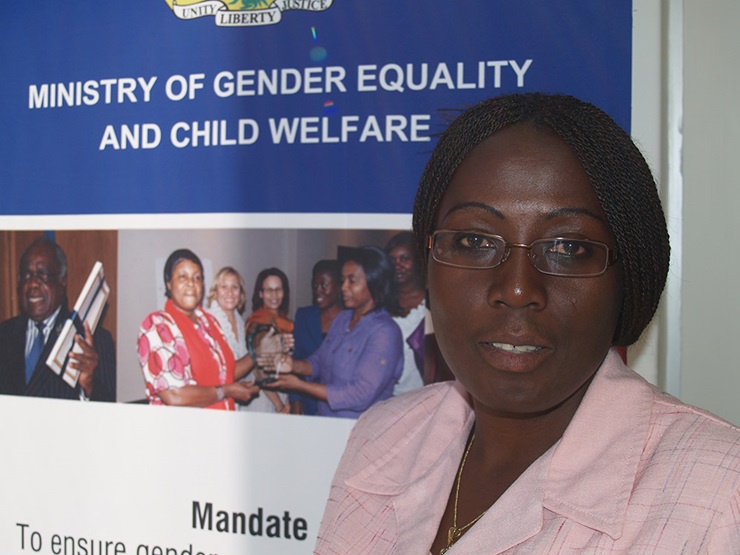 Foto: Johan Bergstedt
Foto: Johan BergstedtThe civil war in Rwanda 20 years ago is a reason that Brigitte Nshimyiamna today works on issues concerning children’s welfare.
“I saw a mother being killed, her children were helplessly crying over the dead body of the mother. I wanted to help, but I didn’t have the chance.”
Today she does. With a bachelor’s degree in social work from University of Namibia and a master’s degree in Child Studies from Linköping University, she has the tools to make a difference for vulnerable children. The war in Rwanda led to Nshimyimana leaving her home country and taking up residence in Namibia. There, she trained as a social worker, and she now works in Windhoek, the capital, for the Ministry of Gender Equality and Child Welfare.
“My heart is still with the children. Education provides the opportunity to make an impact. I am glad I’ve gotten that opportunity,” said Brigitte when we met in her office in Windhoek.
During her years as a social worker, she worked a lot on issues concerning adoptions and foster care placements. Many children in Namibia are orphans because their parents died of HIV-related diseases. She has also worked with other children in different difficult circumstances.
“It’s an issue of taking care of them in a judicious way, and seeing what’s best for them. All children are vulnerable, but these children are even more so.”
Child Studies relate well to current work
Her master’s studies at Linköping University from 2006 to 2008 (most of it as distance learning) brought her deeper into the questions surrounding the conditions children face worldwide, based on aspects such as gender, culture, religion, and ethnicity.
“We also studied the United Nations Convention on the Rights of the Child, and other UN articles that concern the living conditions of children. My studies related quite well to the issues I’m working on in Namibia – among other things, we took up questions that concerned adoption in particular.”
In her current workat the ministry, Brigitte Nshimyimana is continuing to work on adoption issues. She is now working as monitoring and evaluation officer for Child Welfare Services. She deals with planning on a regional and national level for seeing to it that the work on children’s welfare is carried out responsibly and insightfully at every level.
“We would like adoptions preferably to take place within the country, and only secondarily adopt them out to other countries. But regardless of what happens, there are many issues to take into consideration, among them if the child is black and the adoptive parents are white. It’s a question of identity and culture, the child’s best interests should come first. The same applies to children from other difficult circumstances – what’s best for them? Supporting them in their home environment, placing them in an orphanage or giving them up for adoption?”
Brigitte Nshimyimana’s studies at Linköping University have helped her get a more general view of the issues. She would love to go back to her home country Rwanda someday.
“Now I have the knowledge and skills to help my people back home.”
2013-06-15
 Foto: Johan BergstedtThe civil war in Rwanda 20 years ago is a reason that Brigitte Nshimyiamna today works on issues concerning children’s welfare.
Foto: Johan BergstedtThe civil war in Rwanda 20 years ago is a reason that Brigitte Nshimyiamna today works on issues concerning children’s welfare.